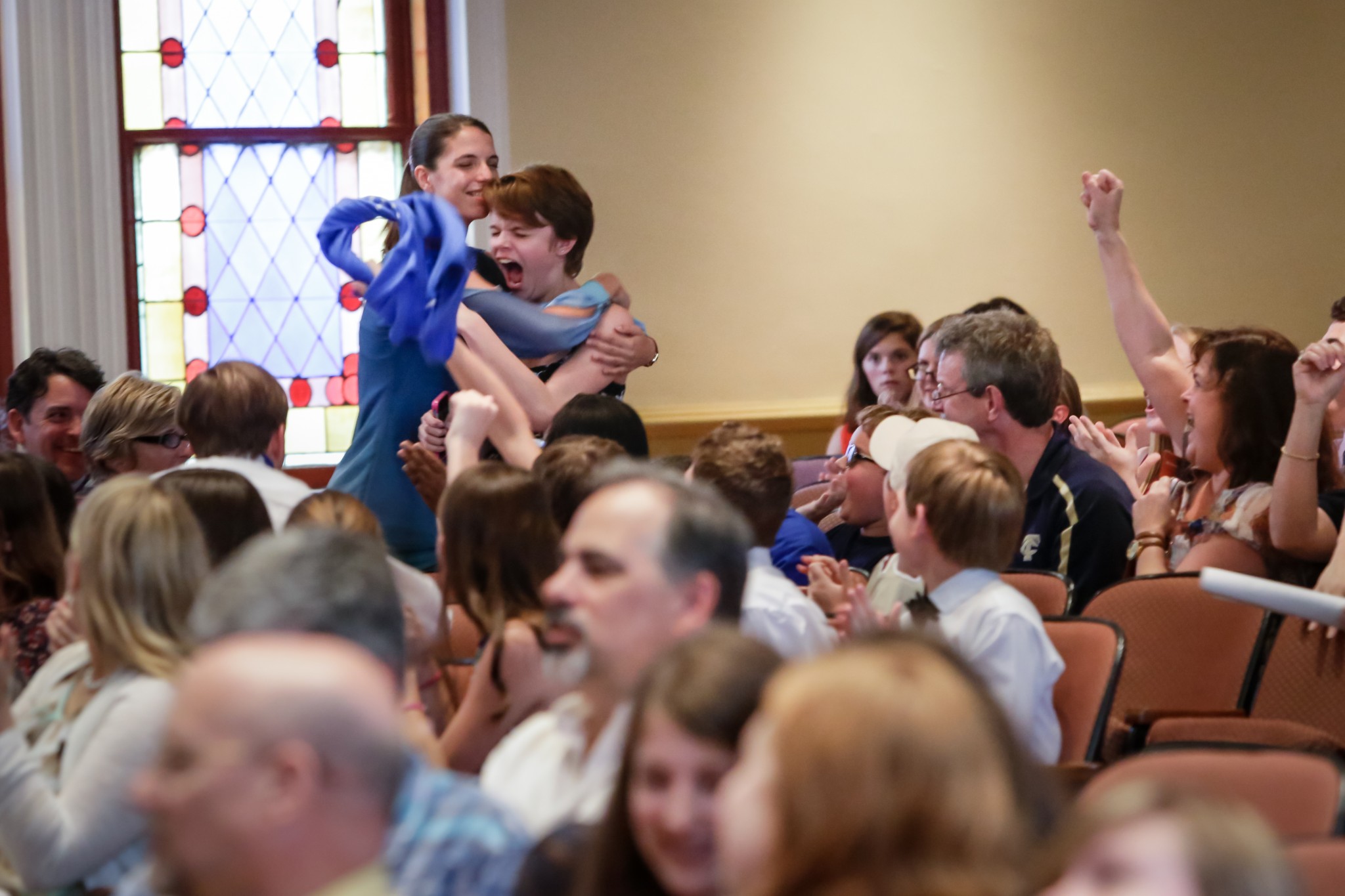
The past comes alive for middle and high schoolers through national history day in georgia - saportareport
- Select a language for the TTS:
- UK English Female
- UK English Male
- US English Female
- US English Male
- Australian Female
- Australian Male
- Language selected: (auto detect) - EN
Play all audios:

_IN THIS COLUMN, MEMBERS OF GEORGIA HUMANITIES AND THEIR COLLEAGUES TAKE TURNS DISCUSSING GEORGIA’S HISTORY AND CULTURE, AND OTHER TOPICS THAT MATTER. THROUGH DIFFERENT VOICES, WE HEAR
DIFFERENT STORIES._ By Jamil Zainaldin In 1978, in an office on the first floor of a century-old building at Case Western Reserve University in Cleveland, Ohio, David Van Tassel, an
accomplished U.S. historian, hatched an idea: what if children came together each year to celebrate the art and craft of history? Van Tassel was familiar with the science fair, a brilliant
idea for introducing school students to the methodology of scientific research via competitive projects judged for their quality and significance. He was also concerned about a lessening of
emphasis on history and the humanities in the schools, a concern that some of us continue to have to this day. Thus, using the science fair model, National History Day was born. As a young
faculty member teaching in the department that Van Tassel chaired, I was privileged to be present in the earliest years of this program, which initially served students in the metro
Cleveland area. Today, his idea has grown into a national program that includes more than 600,000 students from across the United States as well as from Department of Defense schools abroad
and American private schools in China, Indonesia, and Korea, who participate in local, regional, and statewide competitions. The winners of state contests converge on College Park, Maryland,
each June. There, judges award medals for the best documentaries, exhibitions, papers, performances, and websites, as well as special prizes for outstanding entries on women’s history,
African American history, the history of the Marine Corps, Irish and Irish-American History, and a variety of other topics. Prizes include cash awards and some scholarships. Before the
competitions, students select topics and conduct extensive research, using primary and secondary sources. There is an annual theme, which helps them frame their analysis. Whatever their
topic, students must think about cause and effect, as well as significance and impact over time. National History Day hones critical-thinking skills, communication and presentation skills,
and teamwork and problem-solving skills. Georgia Humanities and LaGrange College convene National History Day in Georgia, in partnership with Mercer University. Eleven historical
organizations and higher education institutions host regional competitions. Hundreds of teachers mentor the more than 5,000 student researchers who come from public, private, and home
schools. More than 300 historians, archivists, and educators volunteer to serve as judges. On April 25, 534 students, accompanied by parents, educators, and volunteers, met on a morning of
chilly rain — inside the spacious quarters of the University Center at Mercer — for the Georgia state contest. They hailed from Augusta, Chamblee, Columbus, Dallas, Eatonton, Stockbridge,
Valdosta, Woodstock, and other communities large and small around the state. It was an amazing, vibrant gathering. This year’s theme was “Leadership and Legacy in History,” and one of the
most fascinating elements was the students’ ingenuity of interpretation. _The Beatles_ as “leaders”? Of course! _H. L. Hunley_? Indeed! He was the father of the first combat submarine (of
the Confederate Navy) to sink a warship. There were entries on presidents from Franklin D. Roosevelt (who maintained a home in Georgia) to Jimmy Carter and on such scientists as Jacques
Cousteau and Joseph Goldberger (who developed a process to prevent pellagra). Some students chose to explore local history. There was an exhibition on Robert Woodruff, of Coca-Cola fame,
whom most of us have heard of, and also a documentary on the first African American female fire fighters in our state, whose names are unfamiliar to most of us. Through National History Day,
creative students have the opportunity to share important stories, and the process shapes them and those around them. What a gift National History Day is, for it tethers imagination to
historical fact and critical thinking. These are the essential tools for the next generation of Georgians destined to become entrepreneurs, governors, senators, mayors, county officials,
teachers, professors, business leaders, and of course, moms and dads. Want to know how to build tomorrow’s citizens? Invite our children on a journey through the past where humanity’s
foibles, triumphs, tragedies, and achievements can educate and inspire. That’s the accomplishment of National History Day in Georgia. If you are interested in introducing a student or a
school to National History Day, contact us at Georgia Humanities or visit the program’s website. If you are interested in volunteering to be a judge, we’d welcome that, too. _Kelly Caudle of
Georgia Humanities provides editorial assistance for the “Jamil’s Georgia” columns._ _RELATED POSTS_
